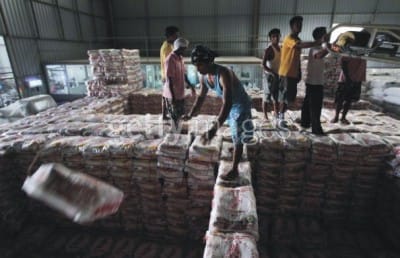37th anniversary of Bangladesh-Thailand relations

Give and take, development make. Photo:getty Images
BANGLADESH and Thailand have long enjoyed friendly relations as trusted and tested friend, even before the two countries established diplomatic ties on October 5, 1972. The friendship between them has grown from strength to strength, and it is clear that never before has it been in as good a shape as it is today.
Great opportunities are opening for Bangladesh and Thailand to further expand cooperation in every area. The 37th anniversary of Bangladesh-Thai diplomatic relations marks a milestone in the long-standing friendship between the two democratic nations.
It is high time for Bangladesh to boost relations with Thailand in order to involve her with Asean, East Asia, China and Japan, into a wider "Asian home" to nurture the economic diplomacy adopted in recent times.
On the other hand, Thailand's emerging economy might help shape our futures.
Bangladesh needs to pay greater attention to creating economic linkages between South-East Asian nations through the Asian highway and its immediate neighbours -- Myanmar and Thailand. India's "Look East" policy is drawing it closer to South-East Asian countries. Bangladesh should join them actively and immediately.
Thailand's "Look West" policy is bringing that country closer to Bangladesh; the "Look East" policy of Bangladesh is drawing it closer to South-East Asian countries. We need to look at better trade relations with our nearest East Asian countries like Thailand, instead of concentrating on the West. We need to work towards integrating Bangladesh into the Asean economy.
Thailand is an advanced economy, and is recognised globally as a hub of the Asia-Pacific region due to its impressive creation, innovation and development of versatile products. Being strategic partners in the region, Bangladesh and Thailand cooperate with each other both bilaterally and multilaterally.
Bangladesh's export items to Thailand include, among others, finished jute products, knitwear, ceramic ware, light engineering products, leather products, acrylic yarn, fertiliser, shrimp, shark fin and fish maws, frozen foods, dry fish etc. Imports from Thailand include, among others, vegetable products, fresh fruits, processed food, mineral products, textile articles, oil, paper, iron and steel articles, rubber, plastic products, cement, polymers, woven fabrics, synthetic yarn, refrigerators, sugar, chemical products, machinery, fish etc.
Although the trade volume between Bangladesh and Thailand has increased steadily over the years, the trade balance continues to remain in favour of Thailand. But sustained growth of the Bangladesh economy and foreign investment in sectors like manufacturing, energy, agriculture and communication have created new avenues for Bangladeshi exporters to exploit the competitive Thai market.
The Thai government has given duty concessions to 229 Bangladeshi products, which were granted in two phases. The first phase, which included 128 Bangladeshi products, has been effective since January 16, 2004. The second phase, which included 101 Bangladeshi products, was effective from May 28, 2004. Bangladesh has so far signed six MOUs/Agreements with Thailand to promote bilateral trade between the two countries.
Bangladesh has the potential to become an investment destination for Thai investors, especially in the textile, agro-processing, leather, energy and tourism sectors. Thai investors can reap benefits by utilising the low infrastructure cost, cheap labour and natural gas of Bangladesh.
Thai investment in Bangladesh is gradually on the increase. Thailand is benefiting greatly as a large number of Bangladeshis travel to Thailand for various purposes, particularly trade, health, education, tourism etc.
Bangladesh declared Thailand as a partner country at the Dhaka and Chittagong International Trade Fairs. The private sectors of the two countries are also working together to enhance bilateral trade for the benefit of both economies.
The Bay of Bengal Initiative for Multi-Sectoral Technical and Economic Cooperation (BIMSTEC) decided to concentrate on 13 sectors, including trade and investment, transport and communication, energy, agriculture, tourism, public health, counter-terrorism, environment and natural disaster and people-to-people contact.
Our cooperation in the years ahead should be widened regionally and bilaterally by establishing land routes to Thailand through Myanmar, exporting manpower, initiating cooperation between Asean and Saarc, attracting foreign investment, pursuing a common active role within the UN system, collaborating in hospital management, building capacity in nurses' training, and promoting tourism.
Collaboration in drug trafficking and counter-terrorism drives, disaster management and post disaster rehabilitation, maritime cooperation, and energy security through energy conservation and use of bio-fuel should get highest priority. Thailand will boost import from Bangladesh and increase investment in the tourism and health sectors. Bangladesh shall also double its jewelry import from the world's leading jewelry exporter, Thailand.
Both countries will increase cooperation in many potential sectors like agro-processing, food, textiles and footwear, fishery products, rice, rubber, automobiles, computers and electrical appliances. Bangladesh can be member of Asean with active support of Thailand, which will allow economic integration with South-East Asia.
Bangladesh will, therefore, continue to promote partnership with Thailand to further enhance opportunities, and to work together to address economic and security challenges in the years to come.
Bangladesh's bilateral relations with Thailand are natural and close. We do believe that this strong bond of friendship and mutual cooperation will continue to grow in depth and dimension in the days ahead of this two BIMSTEC nations. Best wishes for the people of both countries on this auspicious day!

 For all latest news, follow The Daily Star's Google News channel.
For all latest news, follow The Daily Star's Google News channel. 



Comments